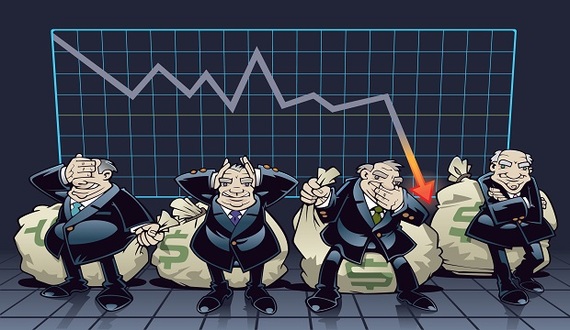
Wall Street firms employ or license hundreds of thousands of sales representatives. Wall Street does not want these reps locked out of the retirement asset market (401ks, IRAs). Wall Street also does not want these sales representative held to higher ethical standards that could negatively impact company revenues.
Consequently, Wall Street is spending millions of dollars fighting a higher ethical standard that requires it to do what is best for investors.
It is in your best interest to spend a few minutes learning about ethical standards that impact your financial adviser.
Department of Labor
The DOL has proposed that all financial advisers and sales people who provide advice for retirement assets in qualified retirement plans and IRAs be held to a fiduciary standard of care.
- Advisers provide financial advice and services for fees
- Sales people sell investment products for commission
What is a Fiduciary?
A fiduciary is a person or firm that holds a position of trust.
In this case, you trust your financial advisor to provide competent, ethical advice that is always in your best interest.
Who are the Fiduciaries?
Financial fiduciary status is based on the registration of the professional or firm.
There are two types of fiduciaries:
- Registered Investment Advisers (Firms)
- Investment Adviser Representatives (Professionals)
RIA and IAR registrations permit firms and advisers to provide financial advice and ongoing services for fees.
Who are the Non-Fiduciaries
Non-fiduciaries also have two types of licenses:
- Broker/Dealers (Firms)
- Registered Representatives (Professionals)
These licenses permit B/Ds and reps to sell investment products for commission.
Non-fiduciaries are not permitted to provide financial advice or ongoing services for fees.
What is a Fiduciary Standard of Care?
Fiduciary is the highest ethical standard in the financial service industry. Firms and professionals are required to always put client needs ahead of their own.
What is a Non-Fiduciary Standard of Care?
Non-fiduciaries are held to a lower standard of care that is called suitability.
Broker/dealers and their representatives are supposed to make suitable recommendations based on their knowledge of investor circumstances, requirements, risk tolerance, and investment horizon.
Why is this a lower standard? Suitability is a deliberately vague standard that is difficult to enforce. For example, three stockbrokers could evaluate the needs of an investor and make three totally different recommendations - and, all three would be suitable.
What About the Hybrids?
You should also be aware some advisers are IARs (advice for fees) "and" registered representatives (sales for commission).
Make sure you ask advisors if they are acting in a fiduciary capacity when they provide financial advice and services.
Another way to make this determination is to ask the advisers how they are compensated. They are fiduciaries if the answer is fees. They are non-fiduciaries if the answer is commission.
Retirement Assets Only
You may have noticed the DOL rule only applies to retirement assets that are held in 401k plans and IRAs.
The DOL has no jurisdiction over personal assets that are held in taxable accounts. FINRA (Financial Industry Regulatory Authority) and the SEC (Securities and Exchange Commission) are supposed to protect you from unethical business practices and bad investment products.
The protection is limited for two reasons:
- FINRA is funded by Wall Street firms
- The SEC is controlled by politicians who are funded by Wall Street firms
You are your own when you rely on advisers and sales reps to help you invest taxable assets in the securities markets.
Now You Know!
It makes sense to always select a financial fiduciary as your adviser. This ethical standard does not guarantee competent, ethical advice, but it helps level the playing field between you and financial advisers who generate income from your assets.
Originally posted on PaladinRegistry.com
About the Author: Jack Waymire has worked in the financial services industry for 28 years. For 21 years he was the president and chief investment officer of a registered investment advisory firm with more than 50,000 clients. He left the industry in 2003 when his book (Who's Watching Your Money?) was published by John Wiley. That same year he launched an investor information website (www.PaladinRegistry.com) that was based on the principles in his book. Jack is a columnist for Worth magazine, a frequent blogger on major financial sites, and widely quoted in the media including the Wall Street Journal, Forbes, BusinessWeek, Bloomberg, and Kiplinger. Follow Jack on Twitter @PaladinRegistry
